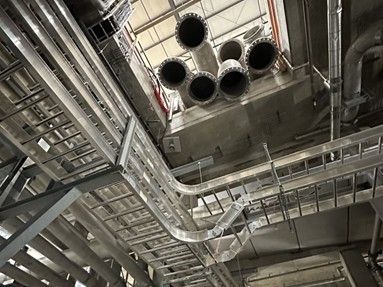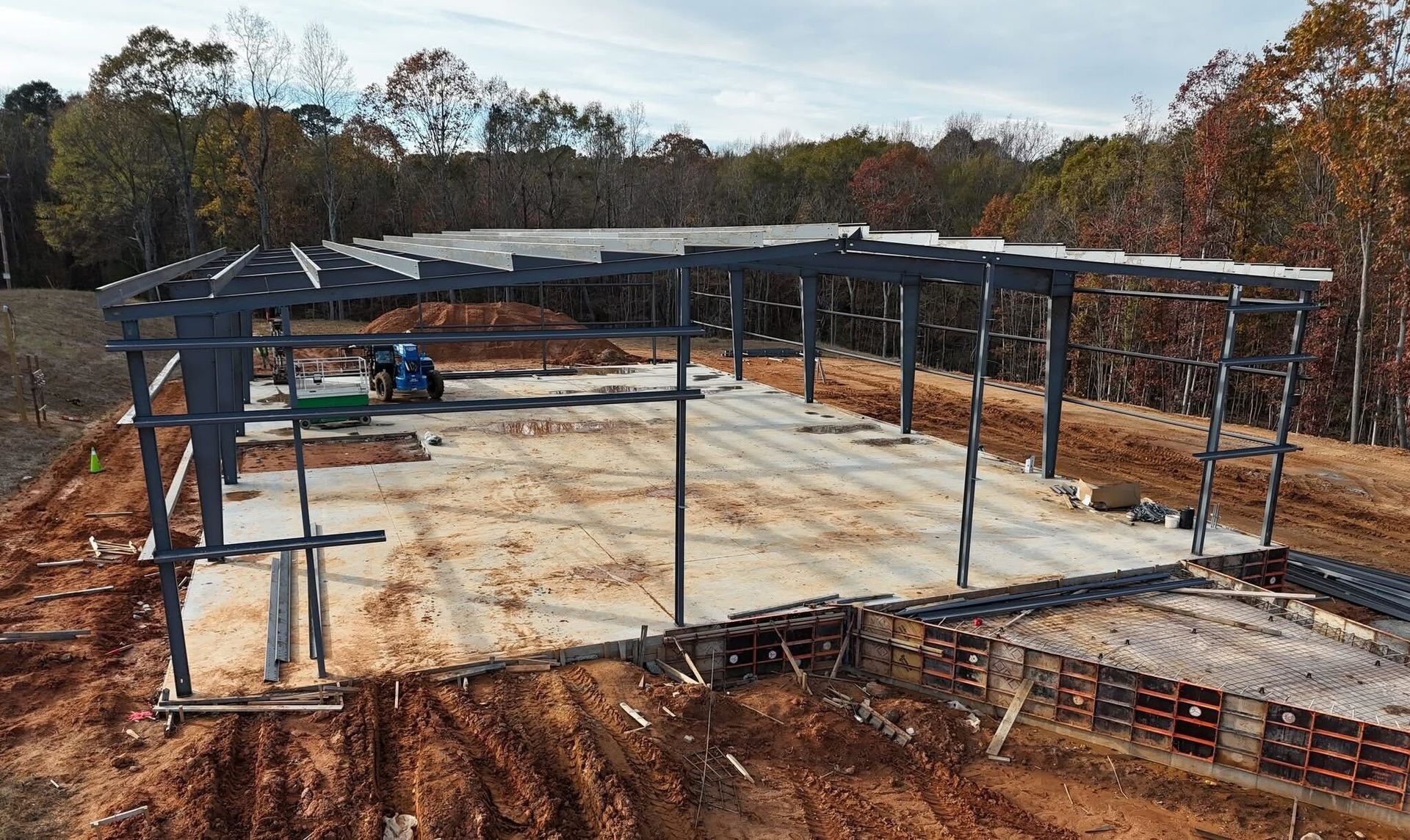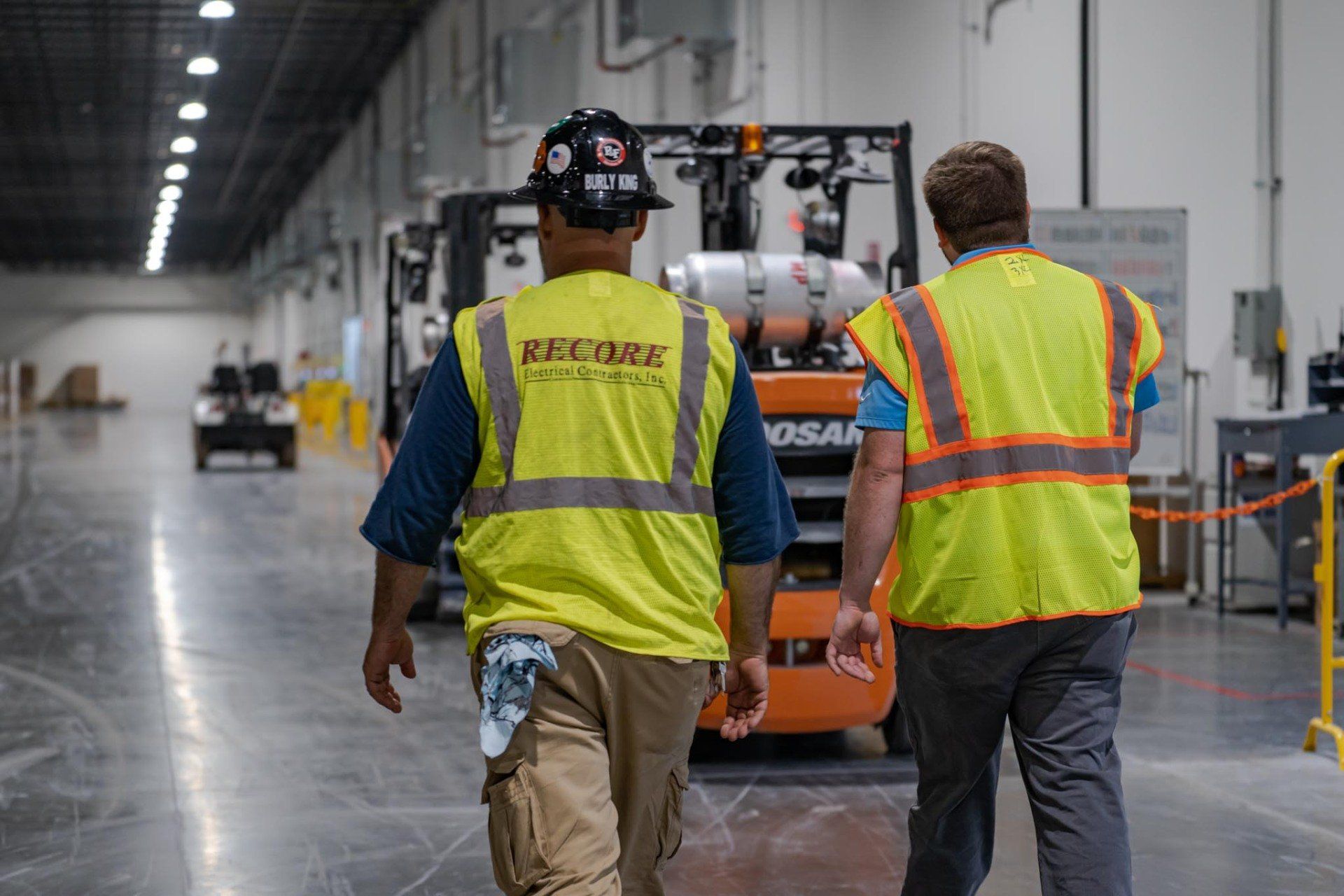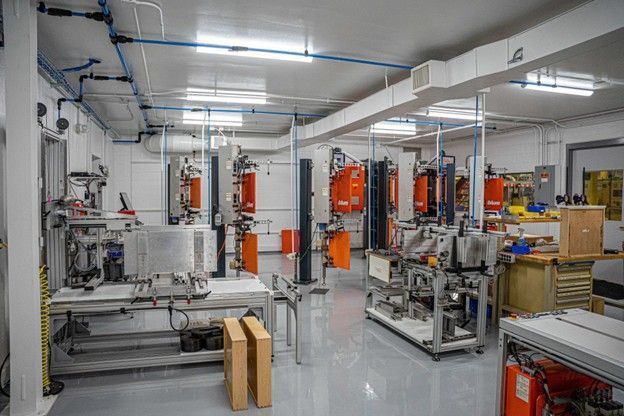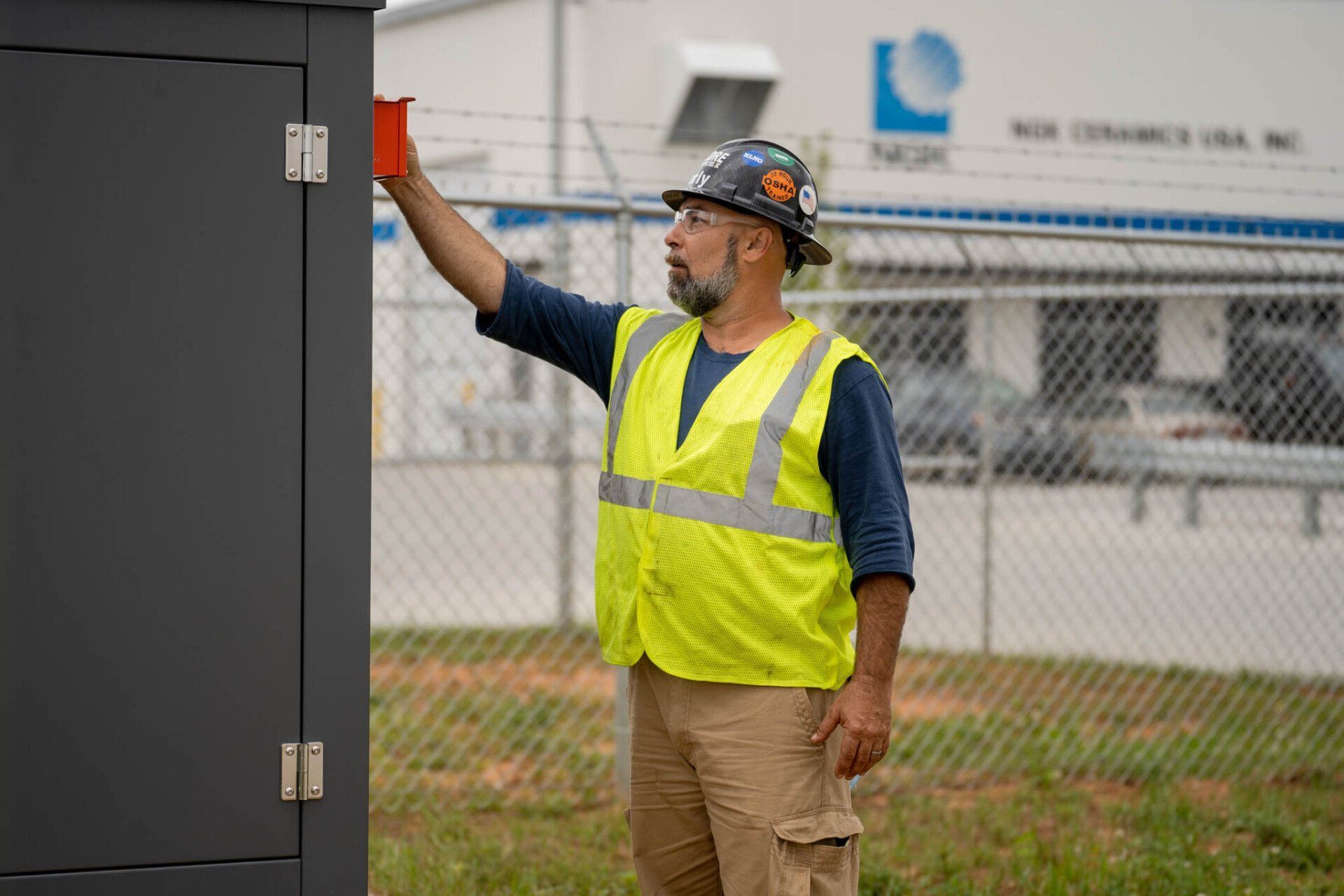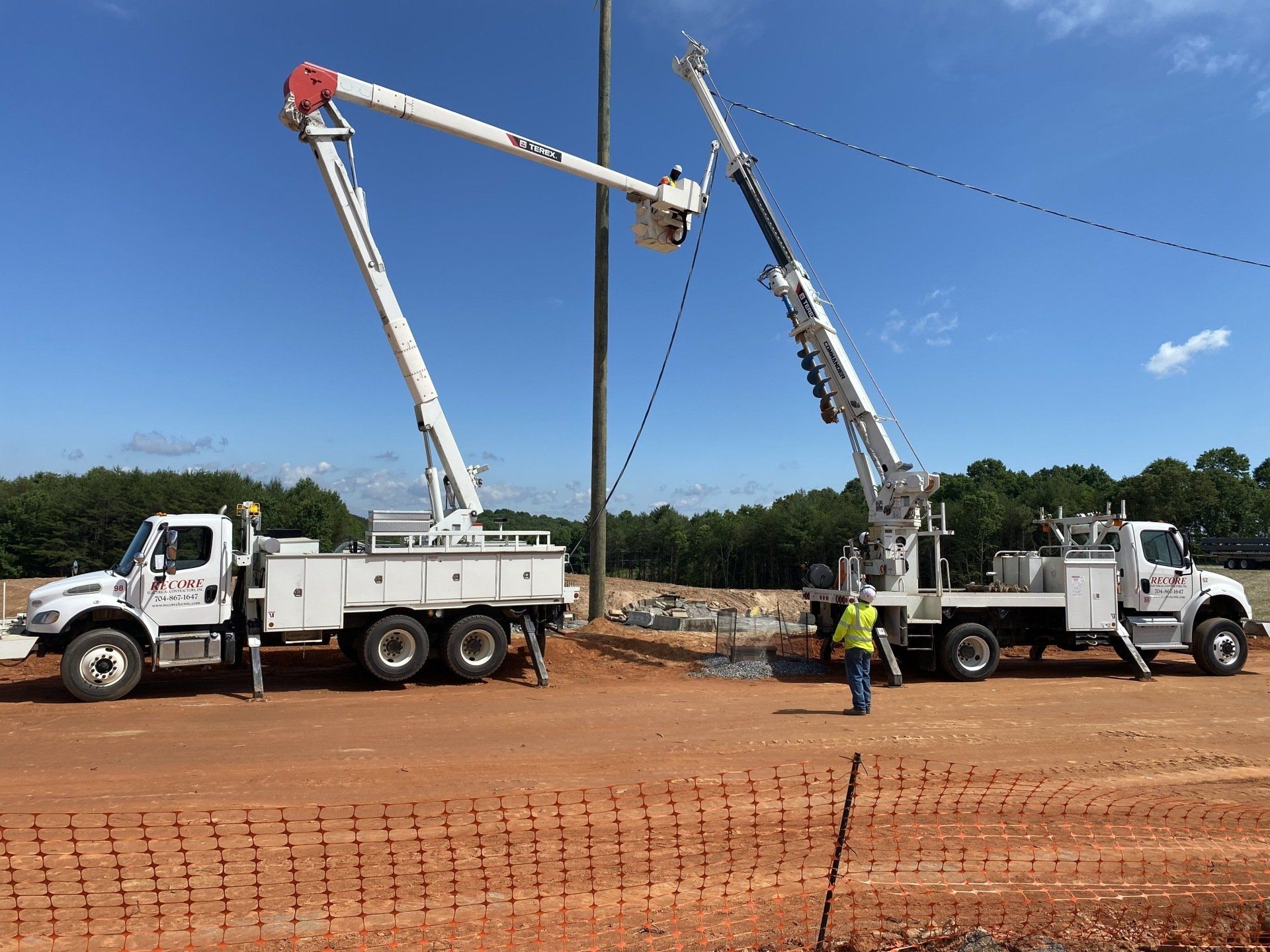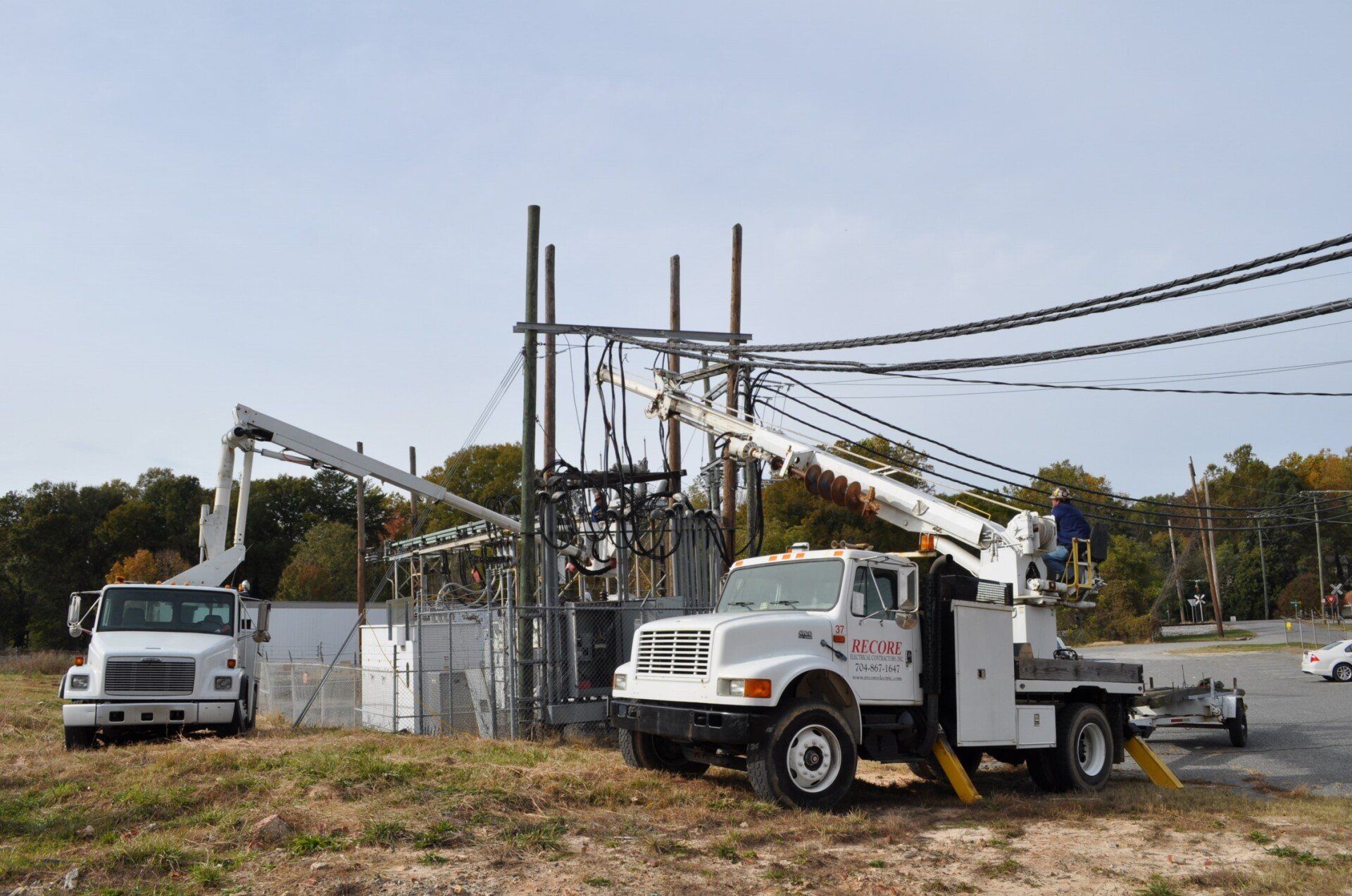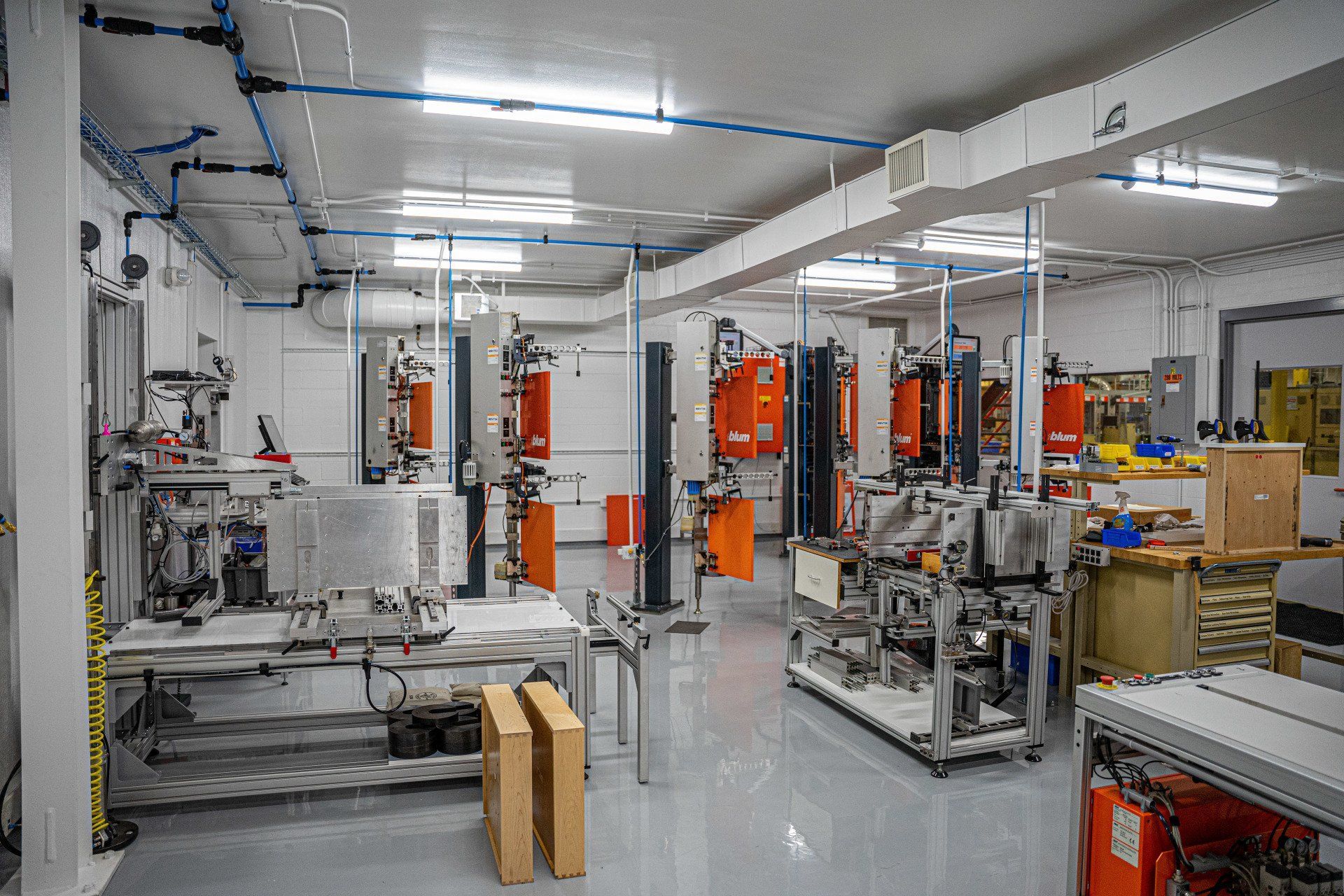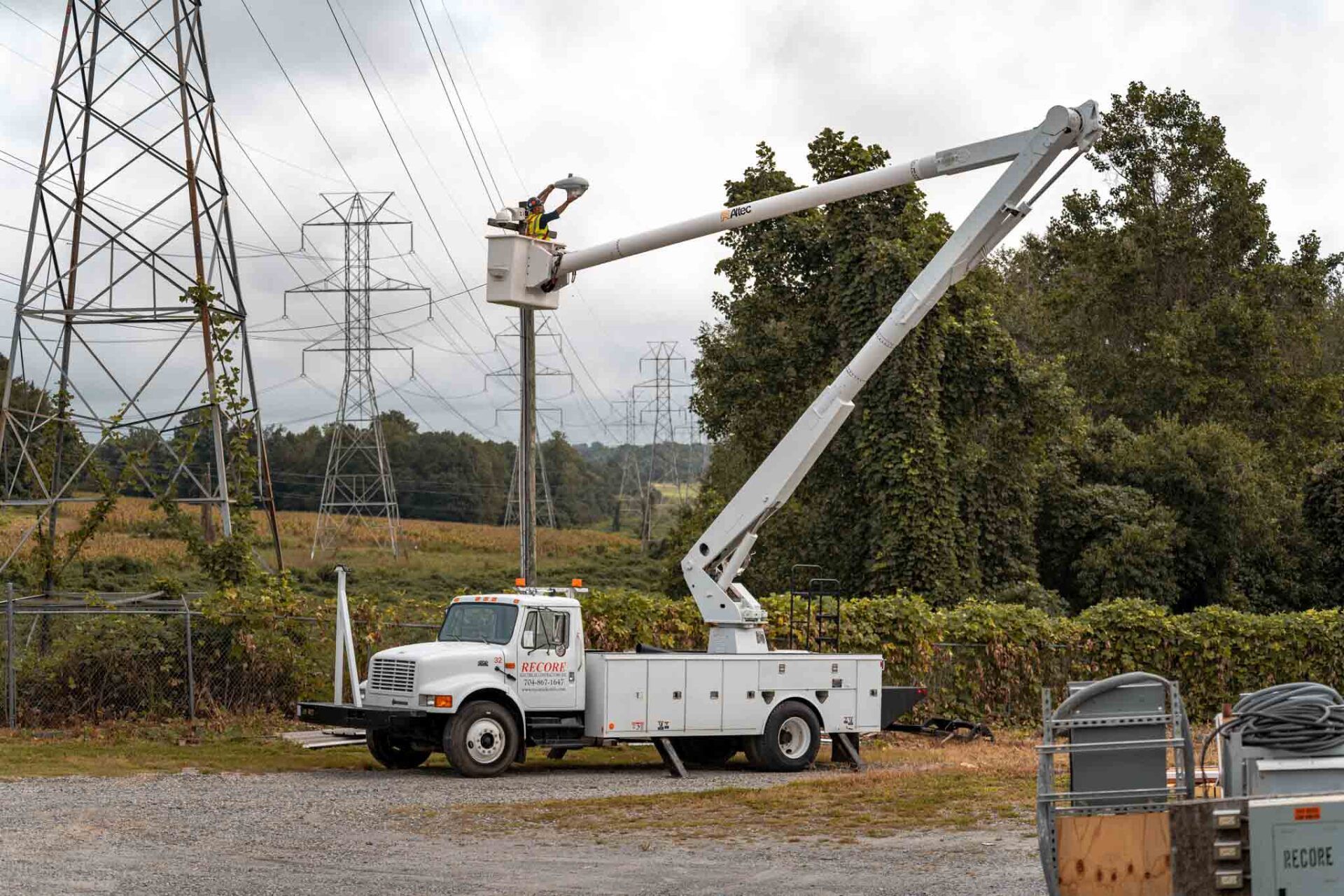Insulation Resistance Testing: Electrical Safety and Reliability
When it comes to electrical safety, prevention is everything. The hidden risk of deteriorating insulation within cables, transformers, motors, and electrical equipment can bring operations to a halt or even cause catastrophic failure. That’s why insulation resistance testing is one of the most important services offered by Recore Electric’s Engineering Services Department.
This essential testing procedure helps our clients verify equipment integrity, detect contaminants, and avoid unplanned downtime. Whether it’s a new transformer installation or ongoing preventive maintenance, insulation resistance testing is a proactive way to confirm electrical systems are safe, secure, and fully operational.
What Is Insulation Resistance Testing?
Insulation resistance testing is a diagnostic method used to assess the condition of electrical insulation. The insulation within cables, transformers, motors, and other electrical components prevents current leakage and protects the equipment from faults or failures. Over time, factors like heat, moisture, contamination, and mechanical stress can degrade this insulation.
By applying a high DC voltage using a specialized instrument called a megohmmeter, technicians can measure how well the insulation resists electrical current. This measurement, recorded in megohms (MΩ), helps identify whether insulation is still effective or beginning to fail.
Why It Matters
Electrical systems rely on solid insulation to function safely. Damaged or compromised insulation can lead to:
- Electrical shocks and safety hazards
- Equipment failure or permanent damage
- Production downtime
- Expensive emergency repairs or replacements
When Insulation Resistance Testing Should Be Performed
Recore Electric provides insulation resistance testing during several key phases of a project or equipment lifecycle:
1. Pre-Commissioning Testing
Before energizing a new transformer, motor, or cable system, insulation resistance tests confirm that the installation was completed properly and free of damage or contamination. This step is critical before applying power for the first time.
2. Routine Maintenance
As part of planned maintenance schedules, regular insulation resistance testing allows facility teams to track insulation health over time. Trends can indicate whether an issue is emerging long before it leads to failure.
3. After Repairs or Modifications
Following cable splices, motor rewinds, or transformer repairs, Recore performs insulation testing to verify the work was successful and the system is safe to operate.
4. Post-Fault Diagnosis
After an unplanned outage or electrical fault, insulation resistance testing helps identify the root cause. It can reveal whether moisture, contamination, or insulation damage contributed to the problem.
What Recore Tests
At Recore, our field technicians use industry-standard megohmmeters to perform insulation resistance testing on:
- Pad-mounted and pole-mounted transformers
- Medium and low voltage cable runs
- Electric motors and generators
- Switchgear and panel boards
- Terminations and splices
In the photo below, our technician is testing a pad-mounted transformer prior to energization. The goal is to verify the insulation is dry, uncontaminated, and capable of handling operating voltage without failure.
What the Test Results Mean
Insulation resistance test results are typically expressed in megohms. Higher values indicate better insulation performance. However, interpretation depends on several factors, including:
- Equipment type and voltage class
- Installation environment (e.g., humid, outdoor, underground)
- Historical test records for that asset
As a rule of thumb, the Electrical Safety Foundation International (ESFI.org) notes that a minimum acceptable insulation resistance is 1 megohm per 1,000 volts of operating voltage, although this can vary by equipment type and manufacturer guidelines.
Recore’s technicians are trained to compare readings against equipment specifications and recommend appropriate action if values fall outside acceptable ranges. A drop in resistance over time may indicate moisture ingress, insulation deterioration, or contamination.
Common Issues Detected
Insulation resistance testing is highly effective at identifying hidden issues before they escalate. At Recore, we’ve helped clients prevent costly failures by uncovering:
- Moisture in cable terminations due to improper sealing
- Contamination inside transformer windings after transport or improper storage
- Damaged motor windings from overloading or overheating
- Degraded cable insulation from chemical exposure or rodent damage
By detecting these problems early, we give clients the opportunity to intervene before a fault, reducing emergency repair costs and preserving uptime.
Tools We Use: The Megohmmeter
The primary tool for insulation resistance testing is the megohmmeter, sometimes referred to as a “megger.” This device applies DC voltages (commonly 500V, 1,000V, 2,500V, or 5,000V) across insulation and measures leakage current. The results help assess insulation health in both new and aging equipment.
At Recore, our technicians are trained on safe operation and interpretation of megohmmeter readings. We also follow proper lockout/tagout (LOTO) and safety procedures before testing to protect personnel and equipment.
Supporting Industry Standards
Recore Electric follows guidelines established by the National Fire Protection Association (NFPA) and the Institute of Electrical and Electronics Engineers (IEEE), including:
- NFPA 70B: Recommended Practice for Electrical Equipment Maintenance
- IEEE Std 43-2013: Recommended Practice for Testing Insulation Resistance of Rotating Machinery
By aligning our work with these nationally recognized standards, we provide testing that meets the highest levels of safety, accuracy, and reliability.
Why Choose Recore Electric for Insulation Resistance Testing?
At Recore Electric, we understand that insulation resistance testing is more than a box to check. It’s a foundational part of protecting your assets and your people. When you work with our Engineering Services Department, you get:
- Certified technicians trained in safe, accurate testing procedures
- State-of-the-art equipment including calibrated megohmmeters
- Detailed reporting with test values, interpretations, and recommendations
- Responsive service that supports your commissioning, maintenance, and repair needs
We believe that every connection should be tested, trusted, and ready. From high-voltage installations to everyday motors, Recore delivers peace of mind and proven performance.
Final Thoughts
Insulation resistance testing plays a key role in preventing electrical failures, reducing downtime, and extending the life of your equipment. Whether you're commissioning new infrastructure or maintaining existing systems, Recore Electric is here to help you verify integrity, identify risk factors, and operate with confidence.
To learn more about our insulation resistance testing services or schedule an onsite evaluation, contact Recore today. We’re proud to deliver dependable engineering solutions to industrial and commercial clients across the region.


